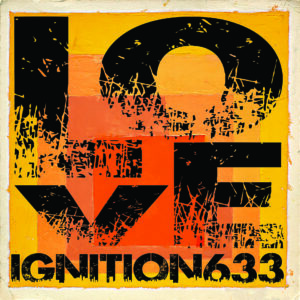Policy - Dress Code
Section: Human Resource Policies
Policy Owner: Ignition633 Ministries Nigeria Human Resources
Policy Name: Dress Code Policy
Origination Date: November 2024
Purpose
This Dress Code Policy upholds the standards of professionalism and safety expected of architects in Nigeria. It ensures that all architects represent the Ministry and the architectural profession with an appearance suitable for office environments, client engagements, and construction sites.
Scope
This policy applies to all architects in the Ministry, including those on-site and those interacting directly with clients.
General Standards of Professionalism
- All architects are expected to maintain a clean, professional appearance, dressing in ways that reflect respect for the profession and uphold the standards of architectural practice in Nigeria.
- Clothing should be well-fitted, neat, and free from excessive wrinkles or damage.
Office Attire
Business Formal or Business Casual Attire is required in the office to meet professional standards:
- Shirts/Blouses: Collared shirts or blouses without visible logos are recommended. Neutral or dark-colored shirts are preferred, reflecting the formal tone of the profession.
- Trousers/Skirts: Dress trousers, chinos, and skirts (knee-length or longer) are appropriate. Dark or muted colors are recommended.
- Footwear: Closed-toe shoes are required, with formal loafers or dress shoes preferred. Open-toe shoes are only permitted if in line with business formal standards for women’s attire.
Accessories and Grooming:
- Keep accessories minimal and professional, avoiding overly casual or flashy items.
- Grooming standards should reflect the profession, with neat hairstyles and minimal, tasteful jewelry.
Site Attire
Safety and Practicality: Architects visiting construction or project sites must prioritize safety while maintaining a professional look. Site-appropriate attire includes:
PPE (Personal Protective Equipment): Hard hats, high-visibility vests, and safety boots are mandatory on construction sites.
Clothing: Durable, practical clothing is required. Long-sleeve shirts, heavy-duty trousers, or jeans without rips or designs are recommended.
Footwear: Sturdy, closed-toe boots with protective features are required on-site to meet safety standards.
Company Identification: When on-site, architects should wear an ID card or Ministry-branded clothing to be easily recognized by site personnel and clients.
Client and Public Meetings
Business Formal Attire is required for client meetings, presentations, and any public-facing engagements:
Men: Suits, blazers, collared dress shirts, and ties are expected to convey professionalism.
Women: Business suits, dresses, or blouses paired with trousers or skirts are required. Conservative cuts and colors that align with Nigerian formal standards are preferred.
Footwear: Closed-toe dress shoes are mandatory for formal meetings.
Prohibited Attire
Certain clothing items are not permitted, as they do not align with the professional standards set by the organization and the Nigerian architectural guidelines:
- T-shirts or tops with large logos, slogans, or bright patterns
- Ripped jeans, cargo pants, or shorts
- Sandals, flip-flops, or casual sneakers (unless allowed on designated casual days)
- Athletic wear, such as yoga pants, leggings, or workout gear
- Tight, revealing, or overly casual clothing that does not reflect a professional image
Special Days and Cultural Attire
- Casual Fridays: Architects may wear smart casual attire, including dark jeans and professional-looking, casual shirts. Footwear should remain closed-toe, such as loafers or neat sneakers.
- Traditional Nigerian Attire: Traditional Nigerian attire is encouraged on designated days or special occasions, provided it maintains a professional and respectful appearance.
Compliance and Adjustments
- Supervisors and managers are responsible for ensuring that attire aligns with this policy. In cases where attire does not meet standards, architects may be asked to change before returning to work.
- The Ministry recognizes the need for cultural sensitivity and provides reasonable accommodations for any specific cultural or religious attire, per Nigerian professional guidelines.
-----------------------------------------------------------------------------------------------------------------------------
This policy will be reviewed annually and is subject to change. Any changes will be communicated to all employees promptly.
For any questions or further assistance regarding this policy, employees should contact the HR department at hr.nigeria@ignition633.org.
